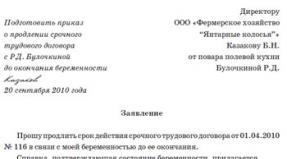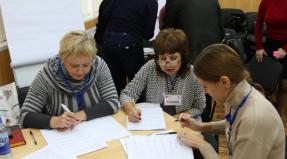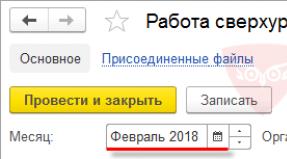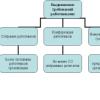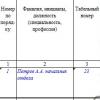What is the main idea of the text and how to define it. Types of semantic connection of sentences in the text
Social science
5 - 9 grades
Help answer questions about the document
Document:
On the humanistic response to the challenges of the time. From the work of the Italian scientist, the first president of the International Club of Rome, Aurelio Peccei "One Hundred Pages for the Future."
A modern person is absorbed in his daily concerns related to the material sphere ... Such a person appreciates more artificial, which he knows how to or tries to create himself, - as I have already written, - than the natural world that created him. He is primarily interested in what he creates himself - even his own food, which he keeps in cans, bottles, freezes, prepares. Nature is in the background, at the very end. Loss of value and others like him; there are so many of them; he does not communicate with them; he is in a hurry to do other things ... And yet he feels like an emptiness grows inside him, he would like to understand himself, to give greater significance to what he is and his business. But his thinking is erroneous and serves this purpose badly.
A new fundamental idea is needed ... This new humanism, adapted to the technological age, will have to radically renew and change the principles and norms that were still inviolable; he must give impetus to the emergence of new value systems and spiritual, ethical, philosophical, social, political, aesthetic, creative motives of behavior that will restore our inner balance, and he must be able to restore in us as the highest good and need love, friendship, mutual understanding, solidarity, sacrifice, coexistence, to make us feel that the stronger these benefits and needs connect us with our brothers and sisters all over the world, the greater our gain will be.
This new humanism must also be enlightened enough, strong, flexible enough to give us the ability to control material revolutions, to show us how to support and direct towards peaceful and constructive forms a socio-political revolution, which now we can only observe, see how it matures or explodes with violence, and in order to make us understand that never, under any circumstances, we should no longer give up the priority of the spiritual.
Questions and tasks to the document
1) What is the main idea of the fragment? Find a statement in the text of the paragraph that reflects this idea.
2) The above text was written in the 80s. XX century Is it relevant today? Give reasons for your assessment.
3) What are the losses in the spiritual sphere caused to mankind by technical progress in the XX century? Compare Peccei's judgments about this with the threats of the 21st century. in the field of culture. Make a conclusion.
4) What are the highest benefits and needs the author considers the most significant? Give your opinion why these.
5) How do you understand the words of the author about the material and socio-political revolutions? With what provisions of the paragraph on the problems of the XXI century. can you relate these words? Explain this connection.
6) Why does the author call his views a new humanism?
7) If you were assigned to write an essay about the future, what problems would you raise in it?
- You have to live in a complex, rapidly changing society. Everyone can face many problems associated with changes in the spheres of life, family, labor, economic and political relations, information and culture. You will have to find a way to solve your own problems yourself. The correct solution can be found only if one has the fullest possible information about the choices that exist in specific social conditions, while correctly assessing one's abilities, general educational and professional level.
- Reasonable and effective responses to the challenges of the 21st century depend not only on the authorities and science, but also on each of you. The solution of many environmental, socio-demographic, sanitary and hygienic problems, as well as the problems of disease prevention, drug addiction, technological safety, familiarization with the values of culture is carried out not only at the state level, but also in the family, neighborhood, workplace, in the activities of an individual ...
- Since there is an obvious tendency for the role of information, knowledge, intelligence to increase in the development of society, your success in life, your career to a decisive extent will depend on whether you will be able to use the years following graduation to become a competent specialist. In the society of the near future, the difference between a person with only a "crust" (a document on education) and a truly highly qualified professional with modern knowledge and the ability to creatively solve emerging production, scientific and social problems will become more and more noticeable.
- In the 21st century, society will need a different level of knowledge and skills in all spheres of human activity. The knowledge gained earlier will not be able to give a ready-made answer to the questions that life will pose. But the existing knowledge must be able to be used to search for new knowledge about the changing world. New, non-standard situations will arise in which it will not be possible to act according to the previous models. A creative solution to emerging problems in production, science, socio-political development will be required. The requirements of the century will be met only by those who, relying on the experience of creative activity, can competently use information, skillfully apply the knowledge gained to solve new problems, and look for previously unknown ways of effective actions in various spheres of life.
Document
On the humanistic response to the challenges of the time. From the work of the Italian scientist, the first president of the International Club of Rome Aurelio Peccei "One Hundred Pages for the Future."
A modern person is absorbed in his daily concerns related to the material sphere ... Such a person appreciates more artificial, which he knows how to or tries to create himself, - as I have already written, - than the natural world that created him. He is primarily interested in what he creates himself - even his own food, which he keeps in cans, bottles, freezes, prepares. Nature is in the background, at the very end. Loss of value and others like him; there are so many of them; he does not communicate with them; he is in a hurry to do other things ... And yet he feels like an emptiness grows inside him, he would like to understand himself, to give greater significance to what he is and his business. But his thinking is erroneous and serves this purpose badly.
A new fundamental idea is needed ... This new humanism, adapted to the technological age, will have to radically renew and change the principles and norms that were still inviolable; he must give impetus to the emergence of new value systems and spiritual, ethical, philosophical, social, political, aesthetic, creative motives of behavior that will restore our inner balance, and he must be able to restore in us as the highest good and need love, friendship, mutual understanding, solidarity, sacrifice, coexistence, to make us feel that the stronger these benefits and needs connect us with our brothers and sisters all over the world, the greater our gain will be.
This new humanism must also be enlightened enough, strong, flexible enough to give us the ability to control material revolutions, to show us how to support and direct towards peaceful and constructive forms a socio-political revolution, which now we can only observe, see how it matures or explodes with violence, and in order to make us understand that never, under any circumstances, we should no longer give up the priority of the spiritual.
Questions and tasks to the document
- What is the main idea of the fragment? Find a statement in the text of the paragraph that reflects this idea.
- The above text was written in the 80s. XX century Is it relevant today? Give reasons for your assessment.
- What are the losses in the spiritual sphere caused to mankind by technical progress in the XX century? Compare Peccei's judgments about this with the threats of the 21st century. in the field of culture. Make a conclusion.
- What are the highest benefits and needs the author considers the most significant? Give your opinion why these.
- How do you understand the words of the author about the material and socio-political revolutions? With what provisions of the paragraph on the problems of the XXI century. can you relate these words? Explain this connection.
- Why does the author call his views a new humanism?
Self-test questions
- Can Science Foresee the Future?
- Name and describe the main problems of the XXI century.
- What are the possible solutions to each of the global problems?
- What is the leading trend in the life of society at the beginning of the XXI century? What do the names of the new stage in the development of society proposed by scientists mean?
- What is the difference between a post-industrial (information) society and an industrial one? What qualities should a person possess in order to successfully live and work in a changing society?
Tasks
- Among scientists who predict the future, there is disagreement about the readiness of certain individuals, population groups, political systems to adapt to the coming changes. Some believe that only cataclysms can give impetus to serious transformations. Others say that humanity can independently, without external influences, make fundamental changes. What do you think? Give reasons for your position.
- Each inhabitant of developed countries consumes 20-30 times more of the planet's resources during his life than other inhabitants of the planet. What are the problems of the XXI century. related to this fact? What are the possible ways to solve them?
- Group the features listed below so that the first group includes features of an industrial society, and the second - a post-industrial one:
- orientation towards renewable energy sources and active search for them;
- squandering the unrecoverable “capital of nature” (coal, gas, oil, etc.);
- decisive branches of science and technology - mechanics and mechanical engineering, chemistry and the chemical industry;
- leading fields of science and technology - quantum electronics, informatics, molecular biology, environmental knowledge;
- personality oriented towards spiritual values and creativity;
- an individual oriented towards production and consumption; the cult of money and power.
- In the discussion about the role of science and technology in society, about the price that humanity will have to pay for progress in these areas, different points of view were expressed. Some said that science and technology develop according to their own laws and are not subject to either public control or political regulation. Others argued that scientific and technological change was dictated by the needs of society. What are your thoughts on the controversial issue? Back them up with arguments.
The thoughts of the wise
"The best prophet for the future is the past."
J. Byron (1788-1824), English poet
Once Fire and Water met on the way. Fire does not like to sit still. Even when he is locked in a stove or hearth, he only thinks how to jump out. Water is also fidgety, always striving somewhere. So they decided to take a walk in their free moment.
Only they greeted, they see - there is Honor. Fire and Water were surprised, they had never met Honor on the road before. This is not such a frivolous signora to run from one place to another or wander along the roads. After all, they did not know that today she had to leave one noble cavalier who had committed a dishonorable act.
Signora Honor, - said Fire and Water, - would you do the honor to walk with us?
Thank you for the invitation, - said Honor. - I'm sure it will be a pleasant trip. But, excuse me, it is my rule to always know what my companions are doing.
Oh, do not worry, Signora Honor, - Water purred, - you will not have to be ashamed of the fact that you are walking with me. I quench the travelers' thirst, mine, wash, irrigate fields and turn mill wheels.
The water murmured the true truth. She only kept silent about the fact that sometimes her murmur turns into a deafening roar and then she breaks dams, floods villages and smashes ships into pieces. But who is pleased to say this about himself, and even at the first meeting?
And I, - said Fire, - illuminate and warm the dwellings, cook dinner and help the blacksmiths forge iron.
Fire did not want to look worse than Water in front of Honor. Therefore, he also kept silent about something. For example, that, after taking a walk, it can burn down an entire village or, falling from the sky, split the venerable old oak tree for fun, which would have stood for another three hundred years.
The honor, which was very scrupulous, but trusting, was delighted with such companions.
So let's go, friends, for a walk together! - she exclaimed.
Wait, - said Fire, - on the way, one of us can turn to the side or get left behind. We must agree on what signs we will find each other. You can recognize me from a distance by the smoke, because, as you know, there is no smoke without fire.
The water said:
Do not look for me where the plants have turned yellow and wilted, where the earth has cracked from the heat. I am where weeping willows, alder, reeds and tall green grass.
As for me, - said Honor, - I have no special signs. If you want to be friends with me, keep an eye on me not to get lost. Take care of me, as the crooked one protects its only eye. Because this is my amazing property, seniors: whoever loses me will never find me again.
And Honor, the only one of the three, told the true truth, not keeping silent about anything.
Most often, in literature lessons, but sometimes in Russian, there are tasks in which the teacher requires students to determine the main or main idea of the work.
However, in order to find the correct answer, and accordingly, and get a good grade, the guys must understand what this task is. That is, what is meant by the main idea of the work or its separate sentence.
To understand this issue as thoroughly as possible, read the article. And you will find out what the main idea of the text is.
What is text
The text does not have to be voluminous and consist of several simple, complex or complex sentences. There are even literary works that include only one capacious and understandable sentence.
And it itself is not always a long structure. Often in speech or writing, you can find such a form where all the necessary information will be conveyed in a single word.
Nevertheless, no matter how a story, a poem or everyday dialogue is presented, the main idea of the text is certainly present in it.
What is the connection of sentences grammatically and meaningfully
In most cases, we are faced with texts that include not one, but a whole group of sentences. The main condition for compiling a full-fledged, logical, meaningful and interesting text is the obligatory connection of these sentences grammatically and meaningfully:
Grammatical connection implies the dependence of the forms of the words of the current sentence with those that were used in the previous and next. That is, the proposals must be coordinated, as if flowing from one to the other.
Connection of sentences by meaning means that the entire text is connected by sentences and the main idea (common for the entire text), which can be traced in each of them.

Types of semantic connection of sentences in the text
So, we found out that sentences should be connected grammatically and meaningfully. However, the semantic connection must be built competently and logically. To do this, it is important to learn the following classification of the relationship of sentences in text or speech:
Chain- the peculiarity of the construction of the text is that each subsequent sentence reveals in more detail the content of the current one. For instance: The brown bear lives in the forest. The forest is the place where these animals build dens for themselves, hunt, breed. From an early age, the cubs learn to get their own food, in this they are helped by the mother bear.
Parallel - the nature of this connection is different, it implies equality of proposals (enumeration, comparison, opposition), and not "clinging" one to another. For instance: The weather was great outside, it was snowing. Vaska and I decided to meet and go sledging down the mountain. Only when we barely climbed to the top, and I was already preparing to race to slide down, my friend chickened out. The idea failed, and the mood was ruined.
Thus, in order to understand what the main idea of the text is, one should delve into the content and produce a mental analysis of each sentence.

Theme and main idea of the text
Additional parts of speech help to organically fit sentences into the text. For example, you can use conjunctions, particles, introductory words, pronouns, etc. After all, it is they that give liveliness, brightness and saturation to the dry statement of facts.
The correct (in meaning and grammatical) construction of sentences is precisely what serves to form the main idea and, therefore, the topic of the text.
The theme is the direction of the work, the problem that rises in it, its essence. It defines what the narrative is, the content of the text. Often expressed directly in the title.
The main (main) idea is the author's message to the readers, what he wanted to convey to people, to the world with the help of his work. It can be expressed in the title or in one of the sentences of the text, but more often it must be “fished out” by yourself, having carefully read the entire text.

Why is it important to be able to extract the main idea from the works
Remember the saying that sounded in the famous work of Alexander Sergeevich Pushkin that your parents and grandparents probably read to you in childhood? If not, then this is what it is: "A fairy tale is a lie, but there is a hint in it, a lesson for good fellows!"
Later, this expression became a catch phrase, referring to almost all children's stories described in books. And to many adult works too. After all, a "lesson" is a combination of the theme and the main idea of any work. Something that has a certain educational influence on us.
However, in order to catch this very hint, you need to figure out what the main idea of the tale suggests. In other words, to learn how to independently define the topic and main idea of the text.

How to learn to highlight the main point
In order to correctly identify the idea of the work, you should remember the following aspects, which are important to be guided by when reading any text:
Follow the flow of the narrative, the development of events and logic.
Pay attention to headings (they can be metaphorical or associative) and keywords that alternate with synonyms throughout the text.
As you read, analyze what is important for the author, what points he emphasizes more.
After reading the work, try to cite from the text or formulate your own conclusion of the story.
Remember: to understand what the main idea of the text is, the observance of the above-described evaluation criteria, as well as a combination of synthesis and analysis of both the entire text and its individual details, will help.
